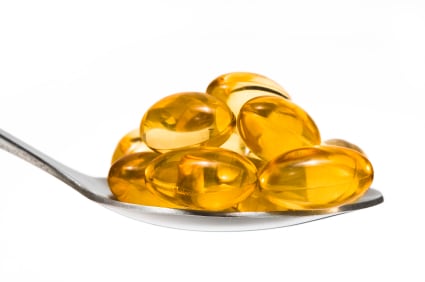The National Institute for Health and Care Excellence (NICE) said new evidence and treatments like the drug Omacor for heart attack (myocardial infarction) patients meant the impact of omega-3 consumption via foods or supplements was reduced.
“NICE no longer recommends eating oily fish, or taking omega-3 fatty acid capsules or omega-3 fatty acid supplemented foods specifically for the prevention of further heart attacks,” NICE said.
“However, people who have had a heart attack should still follow a ‘Mediterranean-style diet’ – involving more bread, fruit, vegetables and fish, less meat, and butter and cheese replaced by products based on plant oils.”
NICE’s earlier pro-omega-3 guidance recommended, “that patients consume seven grams of omega-3 per week from 2 to 4 portions of oily fish or prescription of Omacor 1 gram / day.”
Its revision comes as three heart health-related omega-3 EPA-DHA claims have this week been written into EU law books under article 13 of the tough nutrition and health claims regulation (NHCR).
“In light of the current body of scientific evidence, the unfortunate decision by the National Institute for Health and Care Excellence (NICE) to revoke it's O-3 recommendation for post-myocardial infarction patients is disappointing and somewhat misguided,” said Global Organization for EPA and DHA Omega-3s (GOED) VP of regulatory and scientific affairs, Harry Rice, PhD.
In the literature
He said studies like a recent cohort study with more than 12,000 patients with multiple cardiovascular risk factors published in the New England Journal of Medicine that found omega-3s acids did not reduce cardiovascular mortality and morbidity, needed to be placed in context.
“One of the biggest complaints about recent studies investigating the effects of omega-3s on cardiovascular endpoints is that the studies have been under-powered given that patients are receiving state-of-the-art antihypertensive, antithrombotic and lipid-modifying therapy,” Dr Rice said.
“In essence, omega-3s are not failing to have an effect on cardiovascular outcomes like myocardial infarction. Rather, investigators are failing to power their studies sufficiently in order to detect an effect.”

“NICE, as a public body providing national guidance and advice to improve health and social care, should be seeking cost-effective solutions with minimal side effects.”
He said the NICE advice did not alter the totality of the evidence, which had won health claims under the tough EU system.
“Therefore, consumers should continue to take omega-3 products for heart health.”
